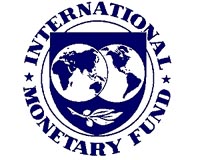| . |  |
. |
Istanbul (AFP) Oct 3, 2009 Group of Seven finance chiefs on Saturday warned against currency volatility, stressing the importance of a strong dollar and a flexible yuan exchange rate for future global economic stability. "We have reaffirmed the necessity for the Chinese currency to appreciate... and we continue to believe that we need a strong dollar," French Finance Minister Christine Lagarde said after the talks in Istanbul. In a joint statement, the G7 ministers also said there were "signs of a global economic recovery" but added that there was "no room for complacency" and that fiscal stimulus measures by governments would stay in place. "Excess volatility and disorderly movements in exchange rates have adverse implications for economic and financial stability," the statement said. The G7 finance ministers and central bank governors welcomed "China's continued commitment to move to a more flexible exchange rate, which should lead to continued appreciation of the renminbi (yuan) in effective terms and help promote more balanced growth in China and in the world economy." European finance ministers put pressure on the United States this week ahead of the G7 talks to defend the dollar, which has weakened considerably as a tentative global economic recovery has taken shape. Meanwhile there have been calls for China to allow its currency, which is strictly controlled by the nation's foreign exchange authorities, to appreciate -- a move that would make Chinese exports more expensive. US Treasury Secretary Timothy Geithner repeated the US strong-dollar mantra while saying restoring sustainable growth was the top priority. "It's very important to the United States that we continue to have a strong dollar," Geithner said in a news conference after the G7 meeting in response to a reporter's question about the weakness of the world's main reserve currency. "We recognise the dollar's important role in the system conveys special burdens and responsibilities on the US," he said. "And we're going to do everything necessary to make sure we sustain confidence," he said, adding that Washington was committed "to make sure we bring our growth level back to sustainable conditions as soon as we have a recovery under way." "The important thing is the world is growing," he added. G7 finance chiefs also discussed moves to help a global economic recovery after the International Monetary Fund said growth had resumed but the crisis was not over because of rising unemployment and a weak financial sector. "No way can we say that the crisis is over" because unemployment is rising and the financial sector is weak, IMF managing director Dominique Strauss-Kahn said in a BBC World debate before the G7 talks in Turkey's biggest city. The G7 brings together Britain, Canada, France, Germany, Italy, Japan and the United States but has now been eclipsed by the G20, which includes major emerging markets such as Brazil, China, India and Russia. Leaders at a G20 summit in the US city of Pittsburgh last week agreed the wider grouping was the main forum for international economic cooperation. Russian Finance Minister Alexei Kudrin also attended Saturday's meeting and the talks were the first for Japan's new finance minister, Hirohisa Fujii, seen as an experienced bureaucrat lacking in international experience. The G7 talks come after the United States -- the world's biggest economy -- this week reported higher than expected unemployment figures and a setback in the recovery of its battered manufacturing sector. US President Barack Obama on Friday said the job losses were "a sobering reminder that progress comes in fits and starts." Signs of recovery have pushed down the value of the dollar, which is traditionally seen on currency markets as a safe haven in tough economic times and whose global reserve status has been questioned. The dollar was trading at 1.4572 to the euro in New York late on Friday. The current state of the dollar has led some experts to conclude that Washington is allowing the currency to lose value as a way of boosting US exports by making them cheaper -- a tactic that would weaken European exports. Share This Article With Planet Earth
Related Links The Economy
 IMF sharply ups China growth forecast
IMF sharply ups China growth forecastIstanbul (AFP) Oct 1, 2009 The International Monetary Fund on Thursday lifted its growth forecast for China's economy this year to 8.5 percent, saying the Asian giant was helping to drive the region's recovery. The IMF's new forecast, made in its twice-yearly World Economic Outlook report, was two percentage points higher than its April forecast of 6.5 percent -- and above the eight percent the government sees as key ... read more |
|
| The content herein, unless otherwise known to be public domain, are Copyright 1995-2009 - SpaceDaily. AFP and UPI Wire Stories are copyright Agence France-Presse and United Press International. ESA Portal Reports are copyright European Space Agency. All NASA sourced material is public domain. Additional copyrights may apply in whole or part to other bona fide parties. Advertising does not imply endorsement,agreement or approval of any opinions, statements or information provided by SpaceDaily on any Web page published or hosted by SpaceDaily. Privacy Statement |